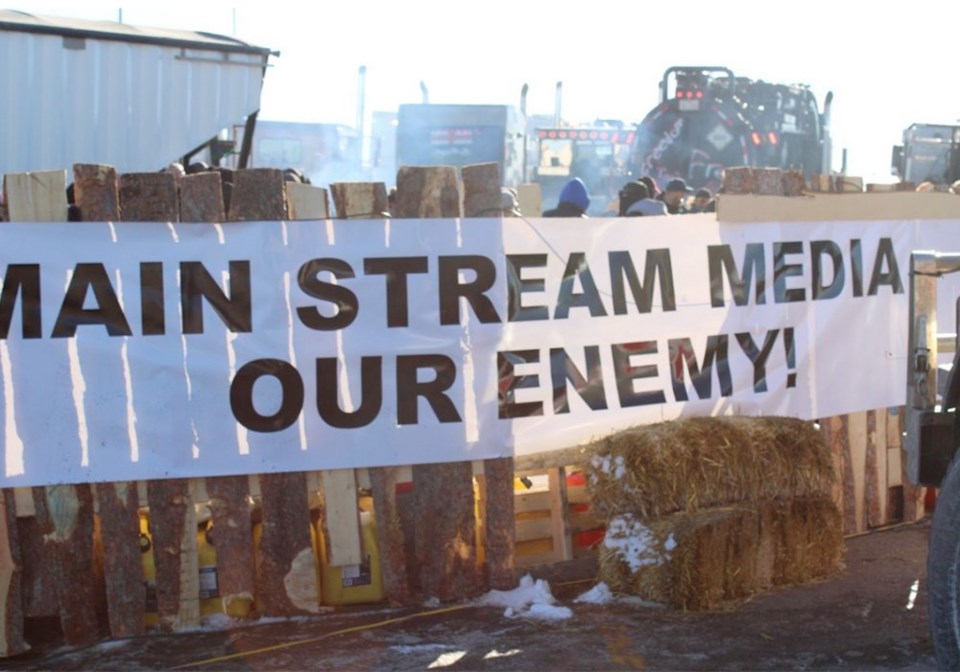WESTERN PRODUCER — I’d sooner believe the worst of mainstream media than the most polished Facebook campaign.
Distrust of mainstream media is becoming widespread. At worst, this has allowed dangerous sources of information to rise to prominence among people who either lack the tools to think critically or who willfully ignore those tools in favour of advancing personal agendas.
At best, it should open our eyes to the need for media-related curriculum in our schools.
I don’t know what thought or image your brain conjures when you read the words “mainstream media.” A lot of farmers seem to loathe it and get a kick out of doing so.
Today, I listened to CBC’s The Front Burner podcast, which gave an account of what was happening in Ottawa through a series of interviews, confrontations and observations. In one scenario, podcast host Jayme Poisson attempted to ask a group of protesters some questions. Her recorder was on.
A voice was heard telling her to leave immediately and refused to talk until the mainstream media “quits distorting the truth.” She assured them that distortion of truth was not her goal.
I have worked for many “mainstream media” outlets and I am routinely in contact with many more. I can assure you there is nothing sinister or conspiratorial going on at the CBC, Globe and Mail, National Post or whichever news purveyor is being accused. These accusations are being adopted too easily and outside the bounds of sober thought.
My 30,000-foot perspective is that the more we become accustomed to distrusting the major news outlets we’ve long relied upon for current news and analysis, the less interested we will become in being media savvy and the more we’ll fall prey to outlier and unregulated information sources.
Facebook and Twitter are not the enemies. I don’t agree with the impervious bubble that Mark Zuckerberg seems to inhabit and exploit, but it’s certainly not his fault that people are duped into joining crusades created by foreign parties.
Curriculum changes are needed in our schools and universities so there aren’t swaths of people lacking the skills to determine what constitutes a trustworthy news source.
The research world is fighting this too amid the onslaught of predatory journals, which, simply put, are journals that have either lost their objectivity or masquerade as having it.
There is a strong compunction among the journalists I know to get at the truth. Some are better at it than others.
These are people with an interest in journalism. They go to university for journalism or find their way in through backchannels and serendipity. They often begin by covering small, local stories and eventually graduate to bigger things, like confronting protesters on Parliament Hill. With some exceptions, they do the best they can.
When I worked at CBC Manitoba, I never once heard my colleagues say anything disparaging about the agricultural sector. If I were in that newsroom now, with 15 or so years of experience I’ve gained as an ag writer since working there, they would welcome the rural expertise I could bring.
During my time at the National Post and Financial Post, I regularly rubbed shoulders with the editors and never got the sense that the giant, unseen machinery required to dupe Canada into believing lies was operating underfoot.
You don’t have to agree with me on this, but you should at least be able to distinguish fact from fiction. And in cases where those appear too similar, you should seek to develop the tools needed to dig deeper.
Toban Dyck farms in southern Manitoba and shares his thoughts through media platforms.




